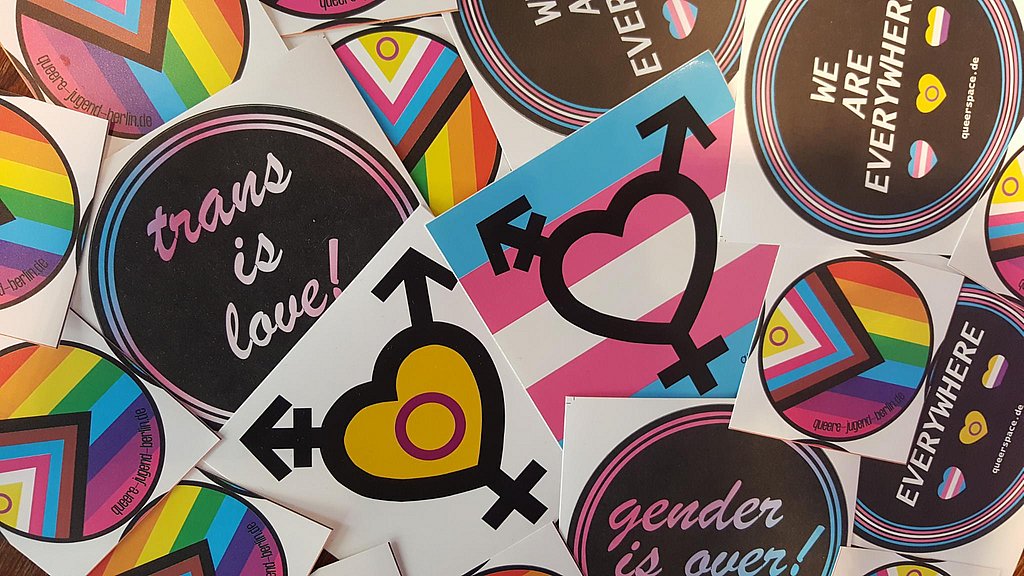Since 2019, the personal status ‚diverse‘ exists in Germany as a new option alongside the gender entries ‚male‘ and ‚female‘ and the possibility to have the entry deleted. How can schools as central educational institutions react appropriately? What are the experiences of trans*, inter*, non-binary, asexual and other students beyond the two-gender norm in school and what are their needs? What can professional pedagogical action look like in concrete terms that assumes a diversity of gender lifestyles and takes intersectional educational barriers into account? And how can future pedagogical professionals be appropriately qualified to think and act in a gender-reflective way?
Since the winter semester 2021/22, ASH Berlin has been cooperating with the BMBF junior research group „Gender 3.0 in Schools: Challenges and Needs for Action in Teacher Education for the Recognition of Gender Diversity with Special Consideration of the Personal Status Diverse“. The research project (2021-2026), headed by Tamás Jules Fütty at the European University of Flensburg, is investigating, among other things, the questions raised. Special consideration is given to the fact that professional action is characterized by numerous tensions. These are to be perceived in a theoretically sensitized way and reflected with regard to the empirical research design as well as to the conception of (high) school practice. In the cooperation, the concept of a pedagogy of diverse gender and sexual lifestyles (cf. alice No . 36 and No. 43), founded by Jutta Hartmann and further developed in the IFAF research project VieL*Bar together with Mart Busche, among others, will be made fruitful. Together, the challenges posed by a denaturalized understanding of gender diversity in pedagogical contexts - an understanding that does not conceive of gender as ahistorically given by nature, but rather as socially and culturally produced - as well as the related areas of tension for research and practice will be elaborated and discussed with a view to a diversity-enabling education for all.
For example, the German language is binary gendered and conveys inclusion and exclusion. To make gender diversity linguistically visible, Gender 3.0 uses the acronym TINA+. This identifies students who see themselves as trans*, inter*, non-binary, or agender. The plus sign refers to other possible self-positionings that do not conform to the dominant bisexuality. It is important in pedagogy to make gendered self-designations discussable in their multiplicity and thus make corresponding subject positions more livable, and at the same time to point to their unfinishedness as well as dynamic change. The challenge is to find a constructive way of dealing with terms such as ‚gender diversity‘ while at the same time recognizing self-designations and to use the different concepts in a goal-, context- and situation-oriented and thoughtful way.
„It is important for schools to address all children and youth who position themselves beyond binary notions of gender...“
TINA+ youth are often discriminated against in school and made invisible by the two-gender school structure. School engagement with gender diversity is often tied to coming out. This ascribes responsibility for addressing the issue to adolescents and inverts the pedagogical relationship. At the same time, a one-sided research focus on experiences of discrimination only brings out TINA+ as a vulnerable group. Gender 3.0 takes the discriminatory experiences of TINA+ students seriously and at the same time wants to demonstrate their ability to act. In the project, approaches are tested that enable pedagogical professionals to recognize their powerful position - e.g. to construct TINA+ as in need of explanation. In addition, it is about developing practices of action beyond heteronormative othering practices - e.g. addressing the diversity of gender self-understandings as a matter of course in everyday school life. To counter the structuring of education through classism, racism, rejectionism and further structures of dominance, multiple affiliations and entangled educational inequalities are taken into account.
For the recognition of gender diversity in school, personal status is diversely relevant. While this allows for partial legal recognition and challenges pedagogy as a discipline and profession. At the same time, however, ‚diverse‘ does not usually constitute a self-designation, and the amendment to the law has been criticized by inter* advocacy groups, among others, because of the attestation requirement. It also failed to allow all people to self-declare their gender and explicitly include trans* and non-binary self-positionings. It is important for the school to address all children and adolescents who position themselves beyond binary notions of gender, as well as all those whose gender self-image corresponds to the gender assigned at birth, but who do not consistently conform to heteronormative attributions.
Gender concepts and the subject conceptions they contain must be constantly critically questioned - also in the context of TINA+ - e.g. with regard to their implicit essentialisms, naturalisms, notions of coherence and reproduction of bisexuality. For this purpose, research findings and procedures are discussed controversially in regular meetings with practice partners, other scientists and community actors.
Gender 3.0 aims to promote a differentiated discussion of gender diversity in schools, which at the same time expands the scope of action of TINA+ students and teachers and also contributes to the gender self-determination of all students as well as to the dismantling of intersectional educational barriers.
Literature Busche, M./ Fütty, T. (2023): Prekäre Subjektivierungs- und Handlungsbedingungen – Trans*, Inter*, Nichtbinarität und Agender in der Schule. In: Kampshoff, M./Kleiner, B./Langer, A.: Jahrbuch erziehungswissenschaftliche Geschlechterforschung Vol. 19: Trans* und Inter*Geschlechtlichkeit in Erziehung und Bildung. Opladen
Brief information
Project name Gender 3.0 in schools: challenges and needs for action in the field of teacher training for the recognition of gender diversity with special regard to personal status Diversity
Project duration 2021-2026
Project management Jun.-.Prof. Dr. Tamas Fütty
Cooperation Alice Salomon University of Applied Sciences Berlin Prof. Dr. Jutta Hartmann
Funding Federal Ministry of Education and Research
Contact Jutta.Hartmann@ash-berlin.eu



